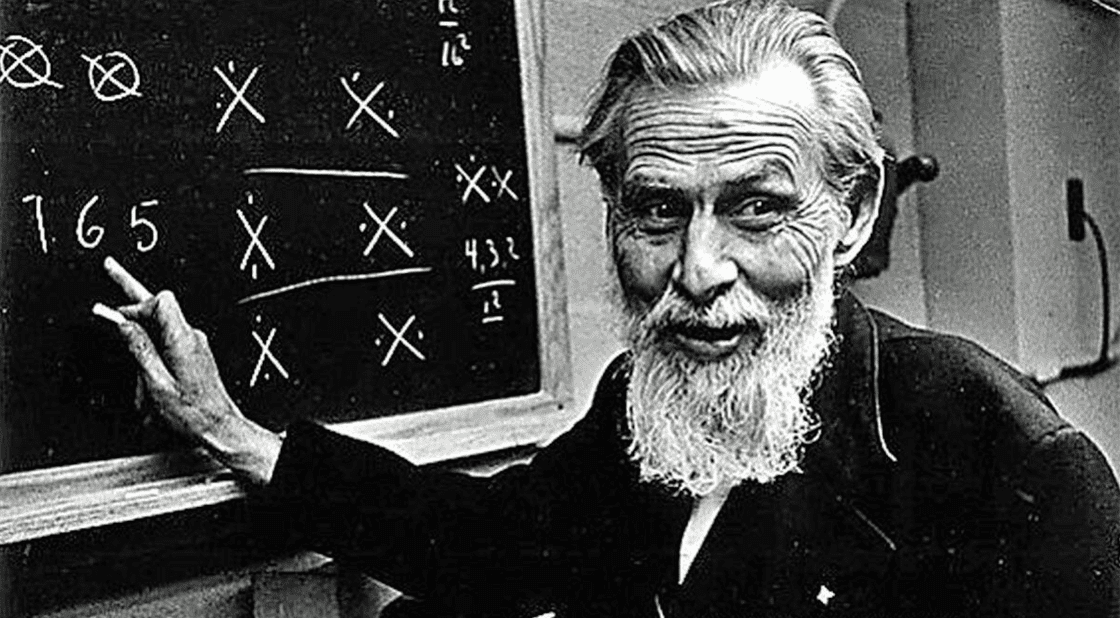Warren Sturgis McCulloch (1898–1969) was a polymath whose contributions to science crossed numerous disciplinary boundaries—ranging from neurophysiology and psychiatry to cybernetics and early artificial intelligence (AI). As a philosopher, poet, neurologist, and engineer, McCulloch’s quest to understand the nature of the human mind and its relationship to the brain was unrelenting. His scientific journey, informed by his deep interest in theology, philosophy, and logic, culminated in ideas that continue to resonate in today’s discussions of cognitive science and AI. This in-depth article explores his life, his groundbreaking theories, and his enduring legacy—illuminating how his work helped lay the foundation for modern computation, cybernetics, and artificial neural networks.
Early Life and Education: The Genesis of a Multidisciplinary Genius
McCulloch’s intellectual foundation was laid during his formative years. Born in 1898 in Orange, New Jersey, McCulloch exhibited early curiosity about philosophical and scientific ideas. He began his academic journey at Haverford College but transferred to Yale University to join the Officers’ Training Program during World War I. After the war, McCulloch completed a degree in philosophy and psychology at Yale in 1921, before pursuing a master’s in psychology at Columbia University.
His philosophical education was deeply influenced by the works of Descartes, Leibniz, and Kant. These influences fueled McCulloch’s desire to understand the relationship between physiology, perception, and thought—a challenge that would become the cornerstone of his career. He pursued medical training at the College of Physicians and Surgeons in New York, earning his MD in 1927. By melding philosophical inquiry with medical expertise, McCulloch positioned himself at the crossroads of mind and brain research.
Pioneering Work in Neuropsychiatry and Experimental Epistemology
McCulloch’s career truly began to take shape during his tenure as a Sterling Fellow at Yale’s Laboratory for Neurophysiology in the 1930s. Here, he became immersed in neuroanatomy, tracing neural pathways and experimenting with how the nervous system processes perception and thought. This period marked the emergence of his concept of “experimental epistemology”—a scientific approach to understanding how the brain constructs knowledge and reality without invoking metaphysical concepts like the soul or mind.
As a neurophysiologist and psychiatrist, McCulloch’s interests spanned the practical and the theoretical. His work at the Illinois Neuropsychiatric Institute, beginning in the early 1940s, exemplified this dual focus. He sought not only to map the brain’s physical processes but also to create mathematical models that could explain its function. McCulloch’s deep engagement with mathematical treatments of biological systems, combined with his psychiatric background, enabled him to explore the intersection of logic, brain activity, and behavior. This work laid the groundwork for his future breakthroughs in cybernetics and computing.
The Birth of Cybernetics and Computational Neuroscience
McCulloch’s most influential contributions emerged from his collaboration with Walter Pitts, a young mathematician. Together, they published the seminal 1943 paper, A Logical Calculus of the Ideas Immanent in Nervous Activity, which proposed that the behavior of neurons could be described using propositional logic. This idea revolutionized neuroscience by introducing the concept of the brain as a computational system—neurons functioning as binary logic gates, either firing or remaining inactive, akin to the operations of a digital computer.
This work anticipated what would later be known as neural network theory and formed the intellectual foundation for artificial intelligence. McCulloch and Pitts’ model was also closely aligned with Alan Turing’s theory of computation, which posited that any function could be computed by a machine if properly encoded in logical steps. By extending this principle to the brain, McCulloch and Pitts demonstrated that biological systems could, in theory, perform any computation achievable by a Turing machine.
McCulloch’s contributions to this new paradigm were not merely technical. His philosophical background led him to ask deeper questions about the nature of mind and intelligence. Could human thought, perception, and consciousness be reduced to logical operations? And, more provocatively, were these operations reflective of a divine order, as McCulloch often speculated? He famously stated that “the ideas in the mind of God are mathematics and logic,” suggesting that human cognition mirrored the logical structure of the universe.
Advancing Cybernetics: The Macy Conferences and Beyond
McCulloch’s influence extended far beyond his work in computational neuroscience. In 1943, he began chairing the Josiah Macy, Jr., Conferences—an annual meeting of leading thinkers across disciplines, including Norbert Wiener, Claude Shannon, John von Neumann, Gregory Bateson, and Margaret Mead. These conferences sought to unite physiologists, engineers, anthropologists, and mathematicians to explore how information, computation, and communication function in biological and technological systems. The Macy Conferences laid the intellectual foundation for cybernetics—the interdisciplinary study of systems, feedback, and control.
As a co-founder and first president of the American Society for Cybernetics, McCulloch championed the idea that biological organisms and machines could be understood through a common framework of feedback loops and information processing. His interdisciplinary approach was not only visionary but also anticipatory of today’s multidisciplinary fields such as cognitive science, AI, and systems biology.
Neural Networks, AI, and the Computational Brain
McCulloch’s legacy is perhaps most vividly realized in the modern development of artificial neural networks. His work with Pitts established the neuron as the building block for what would eventually become the neural networks that power today’s AI systems. These networks, modeled on the architecture of biological brains, are capable of learning, pattern recognition, and decision-making—abilities that have revolutionized fields from healthcare to finance.
However, McCulloch remained cautious about drawing too close a comparison between the brain and computers. While neural networks in machines perform computations in ways that resemble human cognition, McCulloch understood that the brain’s complexity far exceeds the capabilities of current AI systems. He noted that the brain operates in a distributed, parallel manner, processing vast streams of information simultaneously—a process he described as “anastomatic,” or intermingled like the currents of a river. Traditional computers, in contrast, rely on sequential processing, where an error in one step can affect the entire system.
McCulloch also questioned whether machines could ever fully replicate human experiences, such as emotions and consciousness. While machines could simulate logical operations, McCulloch believed they would struggle to emulate the depth of emotional or subjective experiences that define the human condition. This remains a central question in AI research today: Can machines truly think and feel, or will they always be limited to imitating human intelligence?
The Philosophical and Theological Implications: Mathematics, Logic, and the Divine Mind
At the heart of McCulloch’s work lies a profound philosophical inquiry: If neurons operate according to logical principles, are human thoughts and actions simply expressions of these same principles? And, if so, do these principles reflect a larger, divine order? McCulloch’s assertion that “the ideas in the mind of God are mathematics and logic” raises questions about the metaphysical nature of intelligence. Are we, as human beings, simply participants in a vast, mathematically ordered universe, where our thoughts and behaviors are governed by the same laws that govern physical phenomena?
McCulloch’s work invites us to consider whether our brains, as logical processors, are a reflection of the underlying structure of reality itself. This perspective offers a bridge between science and theology, suggesting that by understanding the brain, we may be glimpsing the mechanisms of a grander cosmic logic.
Warren McCulloch’s Enduring Legacy in Modern Science
Warren McCulloch’s contributions to neuroscience, artificial intelligence, and cybernetics remain foundational to our understanding of the brain and intelligent systems. His interdisciplinary approach—spanning medicine, philosophy, mathematics, and engineering—helped pioneer fields that continue to evolve today. McCulloch’s work not only advanced technical knowledge but also challenged us to think about the deeper philosophical and theological implications of intelligence, both human and artificial.
As AI and machine learning technologies continue to shape the future, McCulloch’s vision of the brain as a complex, logical system remains as relevant as ever. Yet his cautious optimism reminds us that while machines may mimic aspects of human cognition, they are still far from replicating the full spectrum of human experience. His legacy challenges us to ask not just how we can build more intelligent machines, but how we can understand the very nature of intelligence itself.
In the final analysis, McCulloch’s work asks us to consider: Are we on the verge of creating machines that reflect the logic of the universe, or is there a fundamental boundary between biological intelligence and artificial computation? His life’s work invites us to explore the possibilities and the limitations of our ongoing quest to understand the mind.
Reads About Warren McCulloch
How and Whys
Rebel Genius Book
Taylor and Francis
American Philosophical Society
National Library of Medicine
Information Philosopher
Science Direct Articles
Research Gate Reads
Google Scholar Reads


